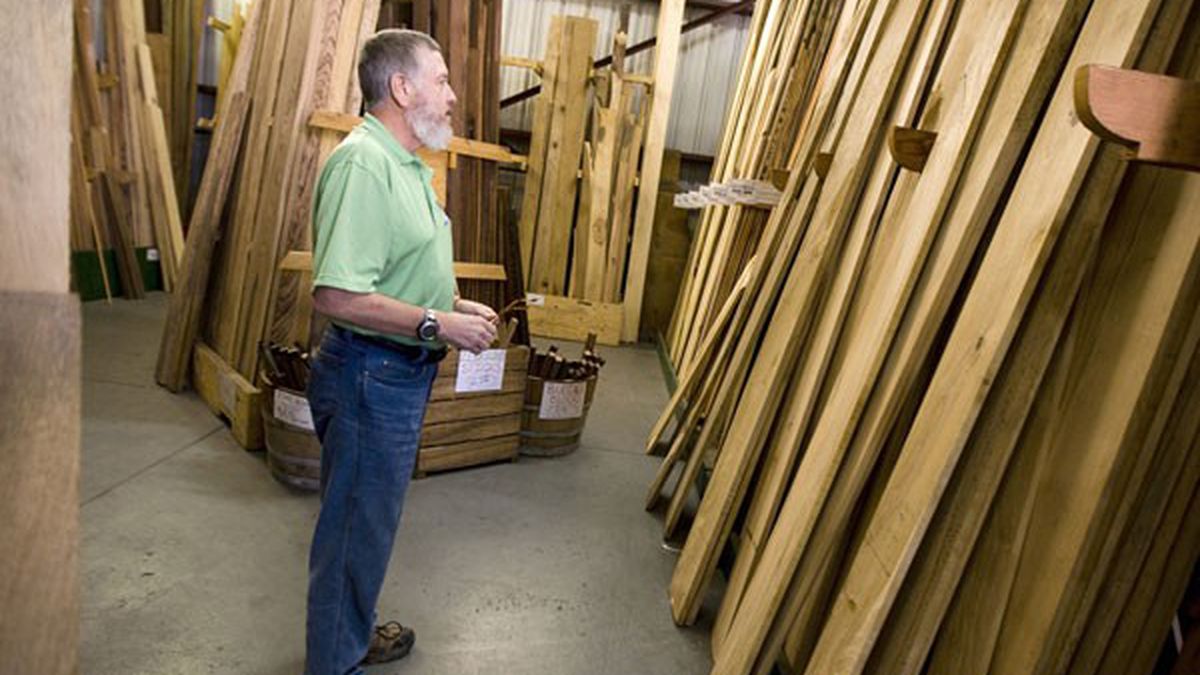Jeff and Marion Hunt have been selling eco-friendly lumber for more
than a decade. In fact, their West Oakland business was one of the
first in the nation to be certified by the respected Forest Stewardship
Council, which ensures sustainable forestry and logging practices
around the globe. But throughout the late 1990s and the early part of
this decade, eco-friendly wood sales represented just a small portion
of the Hunts’ business, despite being in the heart of the
environmentally conscious Bay Area. However, in the past few years,
that has changed dramatically.
Last year, eco-friendly lumber certified by the stewardship council
represented about 35 percent of the Hunts’ total sales. “It’s really
growing,” Jeff Hunt told Eco Watch. “Enthusiasm has changed a lot, and
we’ve been growing larger and larger.” Eco-friendly lumber sales have
jumped so much that the Hunts decided last year to change their
company’s longtime name from Plywood and Lumber Sales to EarthSource
Forest Products.
Traditionally, EarthSource’s best customers for eco-friendly wood
have been cabinet and furniture makers, but the company’s retail lumber
business on 28th Street near Mandela Parkway has begun to grow as well.
In addition to selling lumber cut in sustainable ways, EarthSource
carries wood reclaimed from old buildings and salvaged from fallen
trees. The company is currently working with the state and federal
governments on a salvaged wood project in the northern section of the
Delta. The state is removing white oaks that were undermining Delta
levees. So far, one of the Woods’ largest customers for the white oaks
has been the developer of the old Ford assembly plant in Richmond, who
is turning them into large dining tables for a new cabaret.
Several years ago, EarthSource also completed a huge wood
reclamation project on the ancestral estate of President Andrew Jackson
in Tennessee. A tornado had toppled more than 1,200 aromatic cedars on
the estate, and the Hunts turned the downed trees into lumber.
Earthsource is almost completely sold out of the Jackson estate wood.
One of its last customers was a Ventura company that is using the wood
to create a doghouse as a gift for the Obama family’s soon-to-be-named
pooch.
EarthSource sells eco-certified wood for about the same price as
traditional wood. But Jeff Hunt said the biggest barrier to increasing
eco-friendly wood sales over the years has been convincing customers of
the quality of lesser-known, sustainably harvested wood. Machiche, for
example, is an excellent reddish-colored hardwood grown in Guatemala.
But convincing Americans that it’s a suitable replacement for mahogany,
or some other more recognizable hardwood, has been a challenge.
EarthSource’s growth is proof that the challenge is not insurmountable,
but until Americans realize that there are other woods suitable for
their needs — beyond traditional favorites like mahogany, teak,
redwood, cedar, and oak — then eco-friendly lumber sales are
destined to remain a niche market, relegated to progressive sections of
the country.
The Forest Stewardship Council, a consortium of environmentalists
assembled by the Rainforest Alliance in the mid-’90s, certifies wood as
being sustainably harvested by closely examining the forestry practices
of a large area. Certification rules don’t just prohibit clear-cutting.
They also don’t allow the selective removal of one particular type of
tree from a forest or damage to the forest’s canopy, because either can
alter the forest’s natural ecology or severely affect its health. For
example, if 20 percent of the trees in a particular rainforest are
mahogany, then only 20 percent of the total amount of trees cut from
that forest can be mahogany, Hunt explained.
EarthSource gets much of its rainforest hardwoods from Guatemala,
because the only legal logging in that country is stewardship council
certified. By contrast, major lumber companies have blocked wide-scale
environmentally sustainable harvesting in North America. “Weyerhaeuser,
for example, doesn’t believe in it because they want to be able to
clear-cut,” Hunt explained. Large lumber companies also have responded
to the Forest Stewardship Council with certification programs of their
own. They then market their wood as being “sustainably” harvested, even
though it wasn’t.
Plantation woods also are often advertised as being environmentally
sustainable, but they’re also typically not stewardship council
certified, because they’re usually the result of a forest that was
cleared to plant a specific type of tree. The Hunts, however, own an
interest in a stewardship council certified plantation in Guatemala. A
friend owned a large piece of property that a previous owner had
planted rubber trees on. When the rubber trees died, the Hunts’ friend
planted sustainably grown teak.














